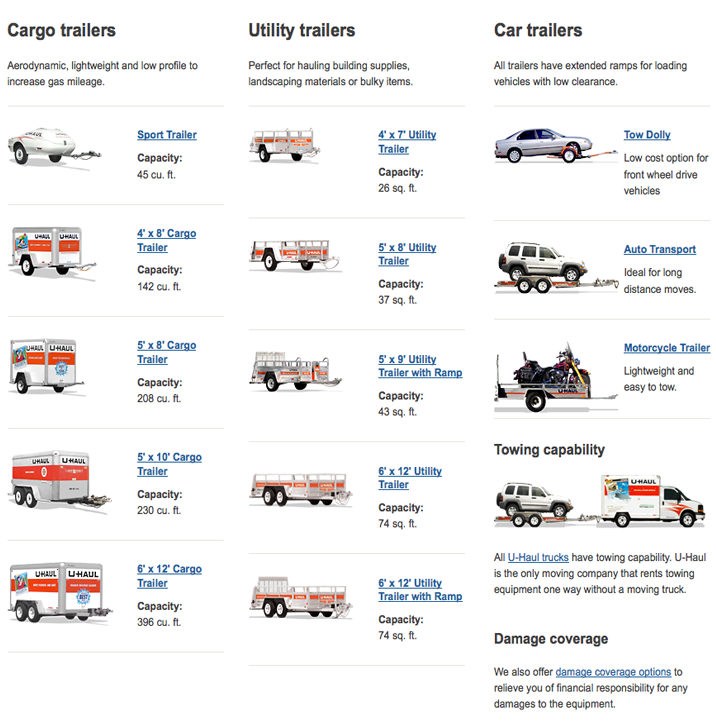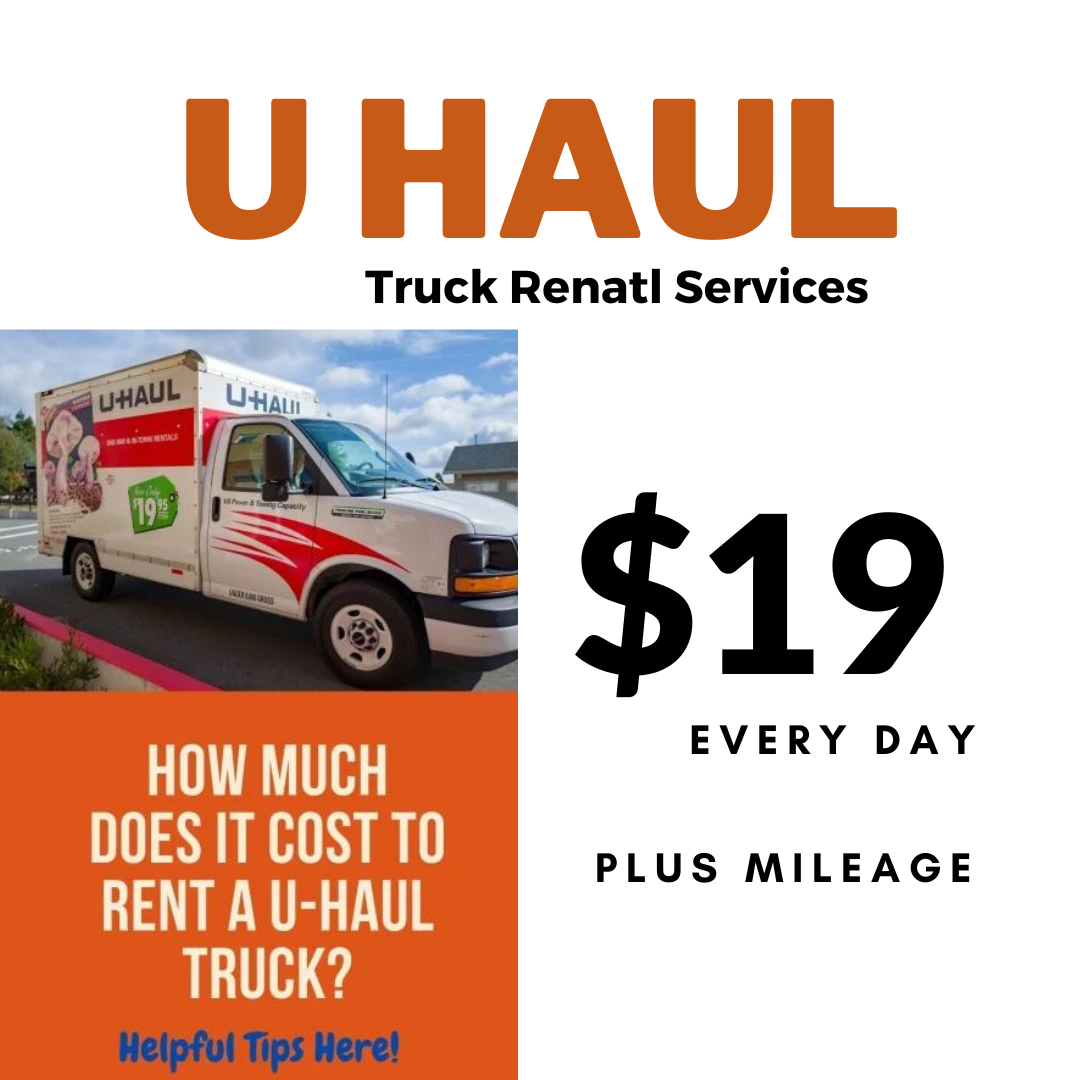Moving a car can be a stressful and expensive undertaking. Whether you're relocating across the country, transporting a project car, or simply need to get a vehicle from point A to point B, U-Haul car trailers offer a convenient and relatively affordable solution. This comprehensive guide will delve into the world of U-Haul car trailer rental prices and sizes, providing you with everything you need to know to make an informed decision and ensure a smooth and successful haul. We'll explore the various trailer options, pricing structures, crucial considerations, and answer frequently asked questions to equip you with the knowledge to confidently navigate the U-Haul car trailer rental process.
Why Choose a U-Haul Car Trailer?
Hauling Your Dreams: A Comprehensive Guide to U-Haul Car Trailer Rental Prices and Sizes
U-Haul is a household name in the moving industry, known for its extensive network of locations and diverse range of rental equipment. Opting for a U-Haul car trailer offers several key advantages:
- Cost-Effectiveness: Compared to hiring a professional car transport service, renting a U-Haul car trailer can often be significantly cheaper, especially for shorter distances.
- Convenience: With thousands of locations nationwide, finding a U-Haul near you is usually easy. You can pick up and drop off the trailer at your convenience, offering greater flexibility.
- Control: You maintain control over the transportation process, allowing you to choose your route, schedule, and driving speed (within legal limits, of course!).
- Security: U-Haul car trailers are designed to securely transport vehicles, minimizing the risk of damage during transit when properly loaded and secured.
Understanding the U-Haul Car Trailer Options

U-Haul offers two primary types of car trailers: the Auto Transport and the Tow Dolly. Each is designed for different vehicle types and towing capacities, and understanding the distinctions is crucial for selecting the right option.
-
Auto Transport (Full Car Trailer): This is a four-wheel trailer designed to carry a wide range of vehicles, including cars, trucks, and SUVs. The entire vehicle is loaded onto the trailer, providing maximum protection and security.
- Benefits: Superior protection from road debris and weather, suitable for long-distance moves, handles a wider variety of vehicle types.
- Considerations: Requires a larger tow vehicle with a higher towing capacity, can be more expensive to rent.


Tow Dolly: A two-wheel trailer designed to tow vehicles with two wheels off the ground. Typically, the front wheels of the towed vehicle are secured to the dolly, while the rear wheels remain on the road.
- Benefits: Lighter and easier to maneuver than the Auto Transport, requires a smaller tow vehicle, generally less expensive to rent.
- Considerations: Only suitable for front-wheel drive vehicles, may not be suitable for long distances or vehicles with low ground clearance, exposes the rear wheels to wear and tear.
U-Haul Car Trailer Sizes and Specifications: A Detailed Look
Before renting, it's crucial to understand the specific dimensions and weight capacities of each trailer type to ensure your vehicle is compatible. Here's a breakdown:
-
Auto Transport:
- Maximum Weight Capacity: 5,290 lbs (Gross Vehicle Weight Rating - GVWR)
- Maximum Vehicle Width: 79"
- Maximum Vehicle Wheel Base: 133"
- Loading Ramp Length: Varies, typically around 9 feet.
- Empty Weight: Approximately 2,210 lbs.
- Common Uses: Standard sized vehicles, cars with AWD or 4WD, larger vehicles.
-
Tow Dolly:
- Maximum Weight Capacity: 3,450 lbs (Gross Vehicle Weight Rating - GVWR)
- Maximum Vehicle Width: 75"
- Maximum Front Wheel Clearance: 3" from the ground
- Empty Weight: Approximately 750 lbs.
- Common Uses: Smaller cars, front-wheel drive vehicles, local moves.
Important Considerations:
- Vehicle Compatibility: Always verify that your vehicle's weight and dimensions are within the trailer's specifications. Exceeding these limits can be dangerous and illegal. U-Haul's website provides a compatibility checker.
- Tow Vehicle Requirements: Your tow vehicle must have sufficient towing capacity and a properly installed hitch. Consult your vehicle's owner's manual for towing specifications. U-Haul also provides guidelines on tow vehicle requirements.
- Hitch Requirements: The hitch must be a Class 3 or Class 4 hitch for the Auto Transport and a Class 2 hitch for the Tow Dolly. U-Haul can install hitches if needed.
- Braking Systems: Ensure your tow vehicle's braking system is in good working order. The Auto Transport has surge brakes that activate when the tow vehicle decelerates.
- Safety Chains and Lights: Always connect safety chains and ensure all lights are functioning properly before driving.
U-Haul Car Trailer Rental Prices: Factors Influencing the Cost
U-Haul's car trailer rental prices vary based on several factors:
- Distance: Longer distances typically result in higher rental fees.
- Rental Duration: The longer you need the trailer, the more it will cost.
- Location: Prices can vary depending on the location of the pick-up and drop-off locations.
- Trailer Type: The Auto Transport is generally more expensive to rent than the Tow Dolly.
- One-Way vs. Round-Trip: One-way rentals are usually more expensive than round-trip rentals.
- Insurance: U-Haul offers optional insurance coverage, which will add to the overall cost.
- Seasonality: Prices may be higher during peak moving seasons.
Price Table: Estimated U-Haul Car Trailer Rental Costs
Please note that these are estimated prices and can vary significantly based on the factors mentioned above. It's always best to get a quote directly from U-Haul's website or by calling a local U-Haul location.
| Feature | Auto Transport | Tow Dolly |
|---|---|---|
| Daily Rate (Local) | $54.95 - $74.95 | $44.95 - $64.95 |
| One-Way (Long Distance, e.g., 1000 miles) | $300 - $800+ | $200 - $600+ |
| Mileage Charge (if applicable) | Varies, often included in one-way price | Varies, often included in one-way price |
| Insurance (Optional) | $15 - $25 per day | $10 - $20 per day |
| Deposit | Typically required | Typically required |
How to Rent a U-Haul Car Trailer: A Step-by-Step Guide
- Determine Your Needs: Assess your vehicle's compatibility with the available trailer types and consider the distance you'll be traveling.
- Get a Quote: Visit U-Haul's website or call a local U-Haul location to get a quote based on your specific needs.
- Make a Reservation: Reserve the trailer in advance, especially during peak moving seasons, to ensure availability.
- Pick Up the Trailer: Bring your driver's license, tow vehicle registration, and payment method to the U-Haul location.
- Inspect the Trailer: Carefully inspect the trailer for any damage before accepting it. Report any issues to the U-Haul representative.
- Load Your Vehicle: Follow U-Haul's instructions for safely loading and securing your vehicle onto the trailer.
- Drive Safely: Drive at a safe and controlled speed, and be aware of the trailer's added length and weight.
- Return the Trailer: Return the trailer to the designated U-Haul location on or before the due date.
Tips for a Smooth U-Haul Car Trailer Rental Experience
- Book in Advance: Reserving your trailer well in advance, especially during peak seasons, is highly recommended.
- Accurate Information: Provide accurate information about your vehicle and tow vehicle to ensure compatibility.
- Read the Instructions: Carefully read and understand the loading and securing instructions provided by U-Haul.
- Secure Your Vehicle Properly: Use all provided straps and chains to securely fasten your vehicle to the trailer. Double-check everything before driving.
- Drive Defensively: Drive cautiously and be aware of your surroundings. Allow extra stopping distance and avoid sudden maneuvers.
- Inspect Regularly: Periodically inspect the trailer and your vehicle's securement throughout your journey.
- Take Photos: Take photos of the trailer before and after use to document its condition.
Potential Challenges and Solutions
- Trailer Availability: During peak seasons, trailer availability can be limited. Solution: Book well in advance or consider alternative dates.
- Vehicle Compatibility Issues: Your vehicle may not be compatible with the available trailers. Solution: Explore alternative transportation options, such as hiring a professional car transport service.
- Tow Vehicle Limitations: Your tow vehicle may not have sufficient towing capacity. Solution: Rent a larger tow vehicle or consider a professional towing service.
- Loading and Securing Difficulties: Loading and securing your vehicle onto the trailer can be challenging. Solution: Watch U-Haul's instructional videos or seek assistance from a U-Haul representative.
- Damage During Transit: Your vehicle could be damaged during transit. Solution: Purchase U-Haul's optional insurance coverage.
Conclusion: Empowering Your Move with U-Haul Car Trailers
Renting a U-Haul car trailer can be a cost-effective and convenient way to transport your vehicle. By understanding the available trailer options, pricing structures, and important considerations, you can make an informed decision and ensure a smooth and successful haul. Remember to prioritize safety, follow U-Haul's instructions, and drive defensively. With careful planning and execution, you can confidently navigate the U-Haul car trailer rental process and move your vehicle with ease. Whether it's a cross-country relocation or a local transport, U-Haul car trailers offer a reliable solution for getting your vehicle where it needs to be.
Frequently Asked Questions (FAQ)
Q: What if my vehicle is too wide for the Auto Transport?
A: If your vehicle exceeds the Auto Transport's maximum width of 79 inches, you will need to explore alternative transportation options, such as hiring a professional car transport service.
Q: Can I tow a vehicle with the Tow Dolly if it has a flat tire?
A: No, the Tow Dolly is not suitable for towing vehicles with flat tires. The front wheels must be able to rotate freely.
Q: Does U-Haul provide straps and chains to secure my vehicle to the trailer?
A: Yes, U-Haul provides the necessary straps and chains for securing your vehicle to the trailer.
Q: What happens if I return the trailer late?
A: U-Haul will charge late fees for trailers returned after the due date. Contact U-Haul as soon as possible if you anticipate a delay.
Q: Is insurance required when renting a U-Haul car trailer?
A: Insurance is not required, but U-Haul strongly recommends purchasing optional insurance coverage to protect against potential damage.
Q: Can I drop off the trailer at a different U-Haul location than where I picked it up?
A: Yes, you can arrange for a one-way rental, allowing you to drop off the trailer at a different U-Haul location. This option typically incurs a higher rental fee.
Q: How far can I drive with a U-Haul car trailer in a day?
A: There is no set mileage limit, but U-Haul recommends driving at a safe and controlled speed and taking frequent breaks. Factors like road conditions and weather can also affect your daily driving distance. It's essential to prioritize safety and avoid fatigue.
Q: What kind of driver's license do I need to rent a U-Haul car trailer?
A: A standard driver's license is typically sufficient for renting a U-Haul car trailer, provided your tow vehicle meets the necessary requirements and you are towing within legal weight limits. A commercial driver's license (CDL) is generally not required unless you are operating a vehicle exceeding certain weight thresholds.
By understanding these FAQs and carefully considering all the factors outlined in this guide, you can confidently rent a U-Haul car trailer and enjoy a smooth and successful vehicle transportation experience.
0 comments